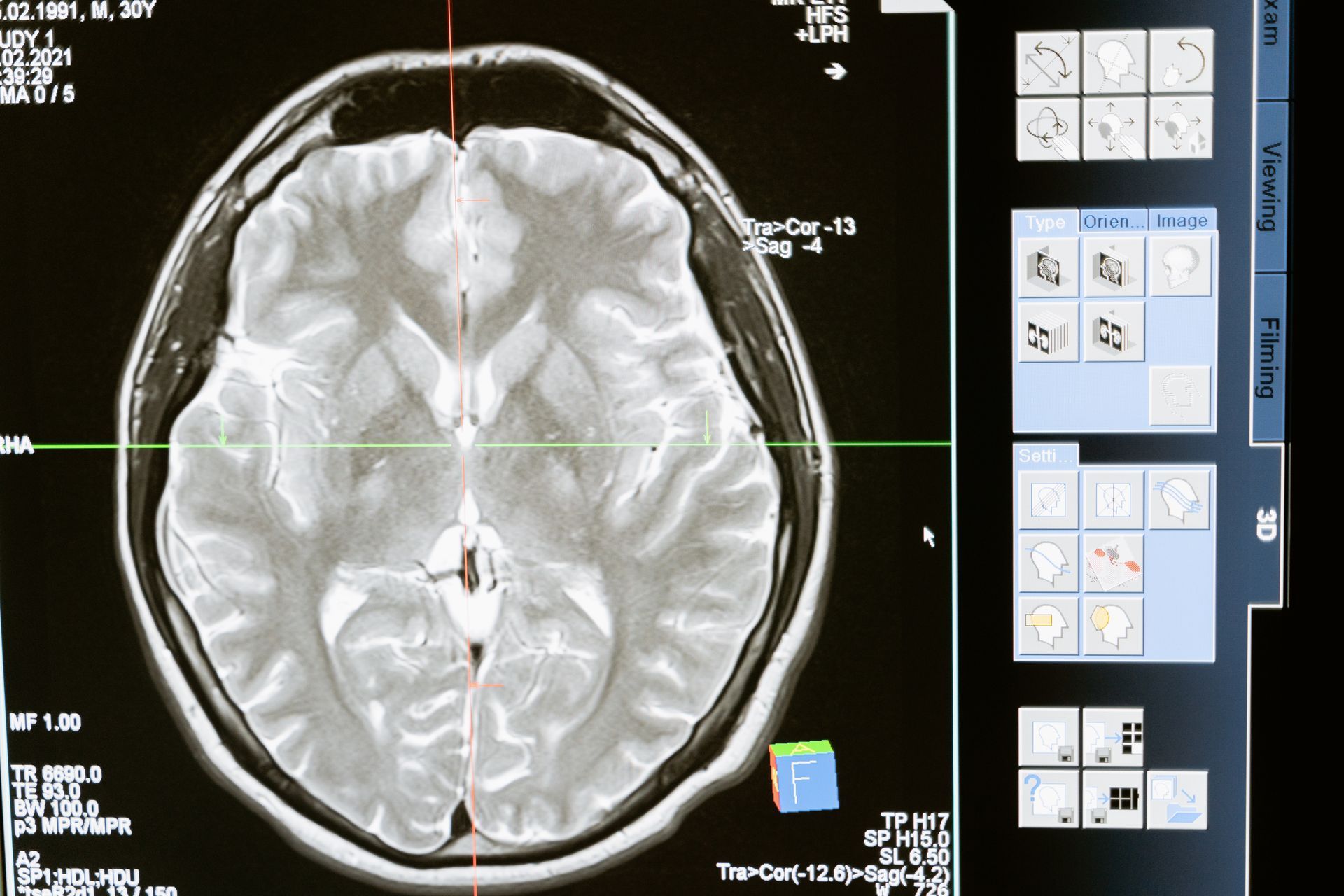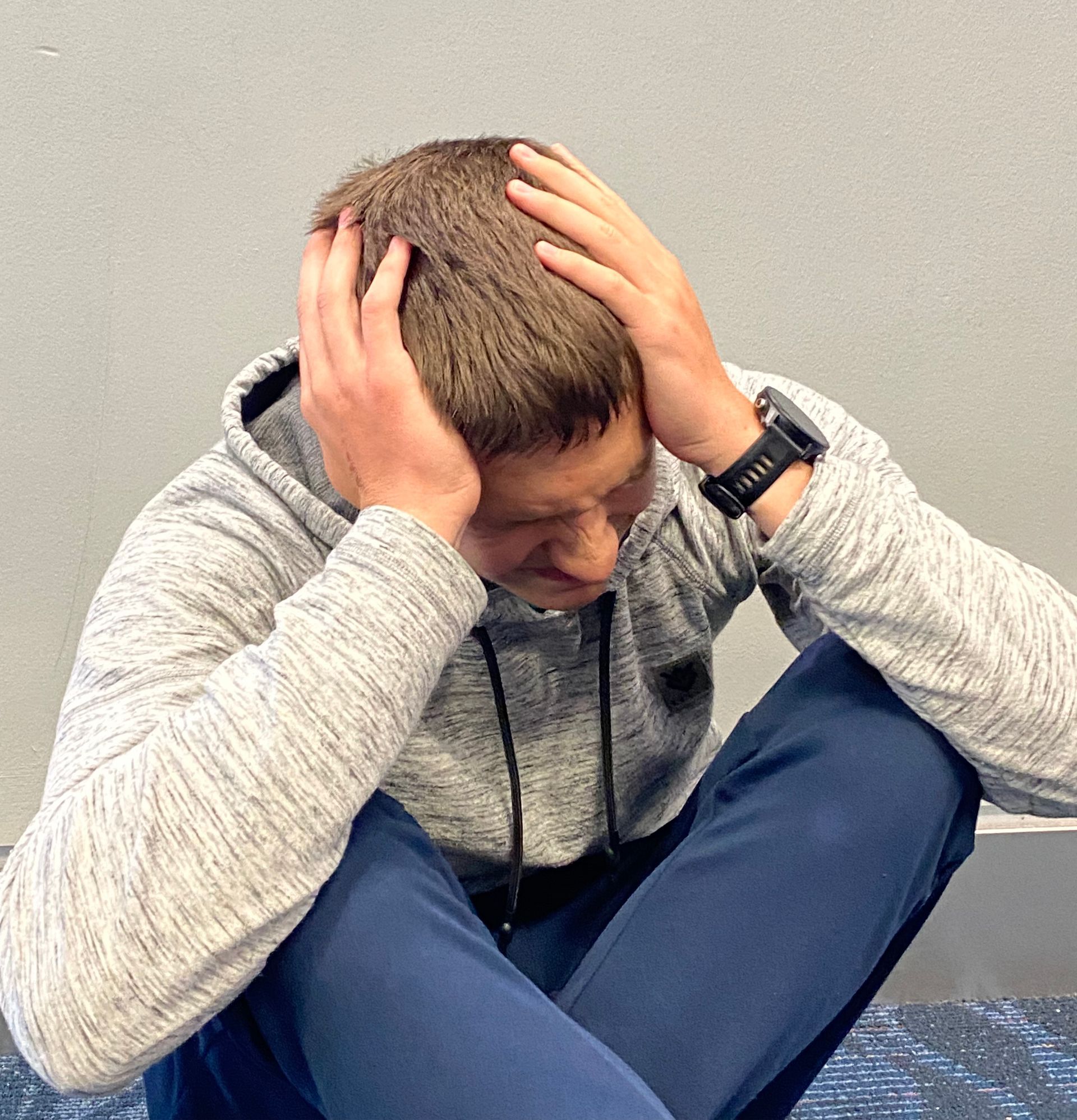Did my child have a concussion?
Every once in a while, alarming news reports about concussions appear, as do opinions of people who brush off the effects of concussions. This can leave parents unsure of what guidelines to follow for their child, especially parents of kids who play soccer, football, wrestling, basketball, spend time at the playground, or other activities where there is risk of head injury (or falls causing head injury). In this blog, we aim to provide some information to help parents identify concussion symptoms and understand post-concussion care.
What is a concussion?
A concussion is a traumatic brain injury that affects brain function. Traumatic brain injuries can be mild, moderate, or severe, and they are usually caused by a sudden blow or impact to the head. Concussions can also be caused by a hit to the body or shaking the body strongly enough to cause the head to forcefully jerk backwards, forwards, or to the side. A person does not need to lose consciousness to have a concussion, and it can happen to a person of any age.
Our soft and squishy brain tissue is surrounded by cerebrospinal fluid, which acts as a cushion against the hard, protective exterior, the skull. When a sudden movement of the head occurs, it can make the brain bounce in the skull, stretching and bruising nerves and blood vessels, causing chemical changes in the brain that result in a temporary loss of normal brain function. A single concussion usually doesn't cause permanent damage, but multiple concussions may result in structural changes to the brain.
Concussions are more likely to occur in:
- Kids 4 and under and older people, due to their risk of falls;
- Kids and adolescents due to bicycle accidents and sports-related head injuries;
- Military personnel due to exposure to explosive devices;
- Anyone involved in a car accident;
- Victims of physical abuse; and
- Anyone who has had a previous concussion.
Symptoms of a concussion
Proper diagnosis and treatment are essential to a quick recovery after a brain injury. Concussion symptoms usually appear within minutes of the head injury, although some symptoms may take several hours to appear. For some people, symptoms can change days later, while for others, symptoms can develop when the brain is stressed with use.
Seek medical attention as soon as possible if a concussion is suspected. (This is so important that we repeat it below.) Consult with the sports team's physician, go to an emergency room, make an appointment with a general practitioner or pediatrician.
Common symptoms of concussion include:
- Headache (this is the most common), one that gets worse, lasts for a long time, or is severe;
- Nausea or vomiting;
- Clear, watery discharge or blood draining from the nose or ears;
- Confusion, such as difficulty recognizing people or places;
- Weakness, numbness, or trouble walking or talking;
- Balance problems, dizziness, lightheadedness;
- Double or blurry vision;
- Eye strain or the inability to open eyes on one's own;
- Unusually sized-pupils (dilated pupils or pupils of unequal sizes);
- Seizures or convulsions;
- Persistent ringing in the ears;
- Sensitivity to light and noise;
- Vertigo;
- Weakness in the arms or legs;
- Disorders of taste and smell;
- Slurred speech or other changes in speech;
- Feeling tired or drowsy;
- Changes in sleep patterns (sleeping much more or less than usual or can't sleep);
- Trouble understanding, paying attention, and/or concentrating;
- Depression or sadness;
- Being irritable, grouchy, nervous, or anxious;
- Feeling "just not right" or in a "fog";
- Forgetfulness, memory loss;
- Temporary loss of consciousness.

If you suspect that someone has had a concussion, additional signs to watch for include:
- Bumps on the head, swelling of the soft spot, bruising (especially around the eyes or behind the ears);
- Pale appearance for longer than an hour;
- Obvious difficulty with mental function or physical co-ordination;
- Will not eat or nurse;
- Excessive crying;
- Lack of interest in favorite toys;
- More fussy than usual;
- Blank stare; and
- Listlessness and tiring easily.
It is rare, but a concussion can lead to bleeding in the brain or brain swelling that can be fatal. This is one of the reasons why it's important to carefully watch a concussed person in the first 24 to 48 hours after the concussion and to seek immediate care if symptoms worsen.
What to do after a concussion
It is important to stop the physical activity (where it's not caused by an accident).
Seek medical attention immediately.
Depending on the severity of the concussion and the specific situation, most concussion symptoms resolve within 14 to 21 days, but an undiagnosed, unrecognized, or poorly treated concussion can delay recovery to months or longer.
Since different areas of the brain control different functions, the location of the blow to the head can predict symptoms. A concussion on the back of the brain (i.e. a force at the front of the head causing the brain tissue to hit the back of the skull) can cause balance issues, fogginess, neck pain, and difficulty concentrating. These symptoms usually require a longer recovery time.
A physician may order a CT scan or MRI if more serious effects of a concussion are suspected, for example, bleeding inside the skull, brain swelling, or spinal cord or cervical spine injury, or if symptoms worsen. For kids in sports with concussion risk, there are also neuropsychological tests that can be used (ImPACT and others). An initial baseline assessment is done at the start of the season and another assessment is done post-concussion to help determine the student athlete's ability to go back to school and sport.
Physical and mental rest is necessary to recover from a concussion. Instead of stopping activities entirely, it is now recommended to start back slowly and add more activities into the day as symptoms improve. To help recognize the triggers that bring on concussion symptoms, here are some activities that bring on symptoms:
- Texting or spending time looking at a smartphone screen;
- Reading;
- Watching TV;
- Playing video games;
- Listening to loud music;
- Doing any physical activity.
Some medications mask symptoms and thin the blood, which may increase the risk of bleeding, so aspirin and nonsteroidal anti-inflammatory drugs (NSAIDS) such as naproxen (Aleve®) and ibuprofen (Advil®, Motrin®) should not be taken soon after a suspected concussion has occurred. This is of special concern for older individuals who may already be taking these drugs and then fall and hit their head. If pain medication is needed after a concussion is diagnosed, acetaminophen (Tylenol®) is a safer option. Symptoms need to be monitored closely.
Since diet affects brain health, it is recommended to continue a well-balanced diet, high in fruits and vegetables, low in saturated fat and processed foods, and with sufficient hydration. One thing to consider is that a concussed person may not feel as hungry or thirsty as before, so they may need encouragement to keep their blood sugar up and their body hydrated (see more on how much water is needed every day on our blog about it here). The brain is sensitive to low blood sugar and dehydration and these conditions can mimic or worsen concussion symptoms such as headache, dizziness, fogginess, stomach ache, and irritability.
Adults with a concussion should refrain from drinking alcohol as it may slow recovery and increase the chance of further injury. Since reaction time can be slower after a concussion, it is recommended to refrain from driving until cleared by one's doctor.
To note, the idea that someone with a concussion should be woken from sleep at regular intervals is outdated information and is now considered a myth. However, it is reasonable to check on a concussed person who is sleeping to ensure that their breathing is steady and to ask them from time to time about their symptoms to ensure that they are not getting worse.
It may also be helpful to note down the day and time of events, medications, sleep, and symptoms as the volume of information will increase quickly and being able to refer back to a previous moment or symptom can be useful.

Recovery timelines and recovery plans from physicians are specific to each person and may involve:
- Additional test or assignment time for students;
- Extra breaks during the work day for an adult;
- Avoiding crowds if the concussed person has balance problems;
- Additional sleep as it can help the brain to heal itself;
- Etc.
Concussed individuals, especially student athletes, should follow their medical professional's advice about returning to partial or full physical and mental activity, based on the results of their post-recovery assessments. If a concussed person returns to play or competition too soon and gets a second concussion, concussion symptoms can last longer, overall recovery can be delayed, and chances for long-lasting or permanent problems can be increased.
Are there long-term effects of a concussion?
Yes, and they include:
- Post-concussion syndrome - where an individual experiences concussion symptoms for weeks or months after the concussion.
- Higher risk of anxiety and depression, especially if there has been multiple concussions.
- Structural brain injuries from multiple concussions, causing long-lasting impairment.
- Problems with memory, naming, and word-finding.
- Dementia.
Again, it is vital to seek medical attention if symptoms worsen or don't go away.
How to prevent a concussion
The following general safety guidelines can help to reduce the risk of concussion:
- Wear seatbelts and buckle up kids in safety seats in your vehicle;
- Wear a helmet when bicycling, motorcycling, horseback riding, or skiing;
- Use handrails when going up and down stairs;
- Install temporary safety gates in the home to protect young children;
- Put nonslip mats in the bathtub and on floors
- Remove trip hazards;
- Consider playing sports that have lower risk of concussion; and
- Strengthen neck muscles as they may be able to help some of the impact of blows to the head.
As pharmacist parents, we want to protect kids and adults, so we are positive on prevention!
Resources and References:
- Mayo Clinic on concussions - https://www.mayoclinic.org/diseases-conditions/concussion/symptoms-causes/syc-20355594
- CDC on concussion signs and symptoms - https://www.cdc.gov/headsup/basics/concussion_symptoms.html
- Cleveland Clinic on concussions - https://my.clevelandclinic.org/health/diseases/15038-concussion
- UC Davis health on spotting concussions - https://health.ucdavis.edu/blog/cultivating-health/how-to-spot-a-concussion-and-what-to-do-if-you-suspect-a-brain-injury/2022/09
- Medical Xpress on link between sleep and concussion - https://medicalxpress.com/news/2023-06-link-concussion.html
- BBC News on whether ban on heading the ball has affected soccer in the USA - https://www.bbc.com/news/uk-scotland-51618401
- Health Direct on concussions -
https://www.healthdirect.gov.au/concussion





